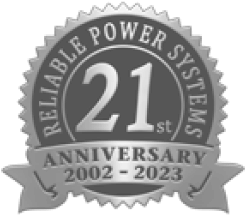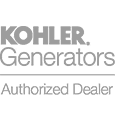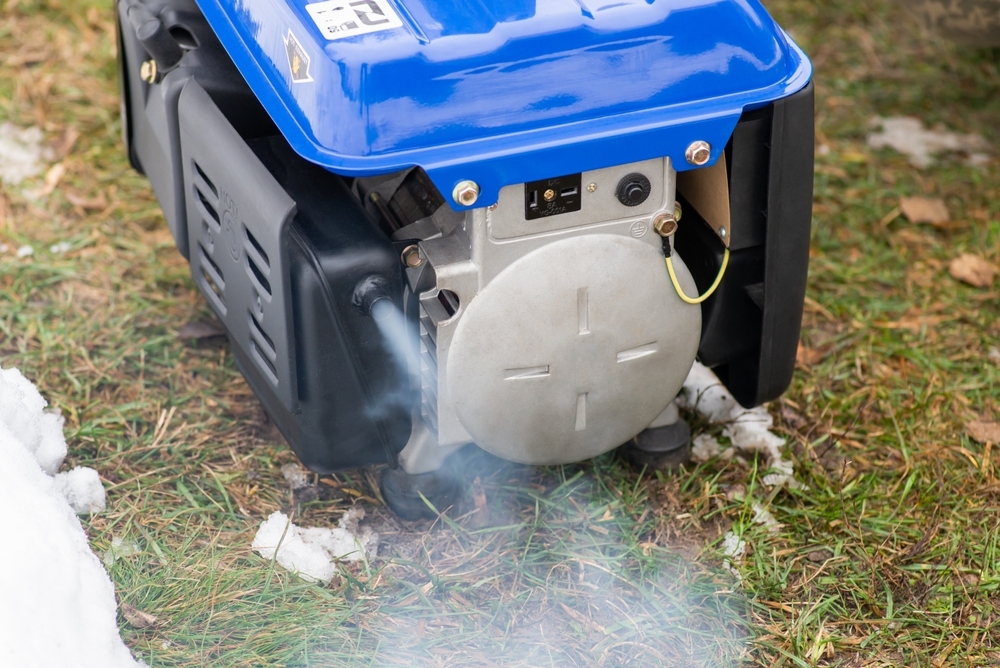
When a power outage strikes, a portable generator is your go-to choice for simple, easy, mobile backup power. While a portable system is an effective solution, investing in a whole-house generator is a better option to safeguard your living space against the negative consequences of power outages.
To help you learn more about the benefits and drawbacks of portable generators, we have created a comprehensive guide. Continue reading to view our recommendations on backup power generators.
Solar and Battery Portable Generators
What if your source of backup power could also power itself? That is where solar or battery-powered generators shine. Without fuel, these generators produce no fumes or noise during operation, making them the ideal eco-friendly option for areas without primary power like campsites.
This means the generator produces no fumes or exhaust, making these types of generators the only ones you can safely use indoors.
Recreational Inverter Generators
Whether you’re camping, tailgating, or engaging in other outdoor activities, you need a high-quality backup power option when necessary. Recreational inverter generators are your ideal pick, as they offer a quiet, lightweight, and easy-to-use option for delivering up to 6kW to your electronics.
Emergency Portable Generators
When a power outage strikes, you never know how long your home or business will be without power. Emergency portable generators are designed with much more powerful engines and larger fuel storage tanks, allowing you to run appliances like your fridge for much longer periods.
Professional Commercial Portable Generators
Loss of power can halt your daily operations. However, with a commercial portable generator, your business can run without issue due to heavy-duty, high-quality components designed for extended periods with minimal wear.
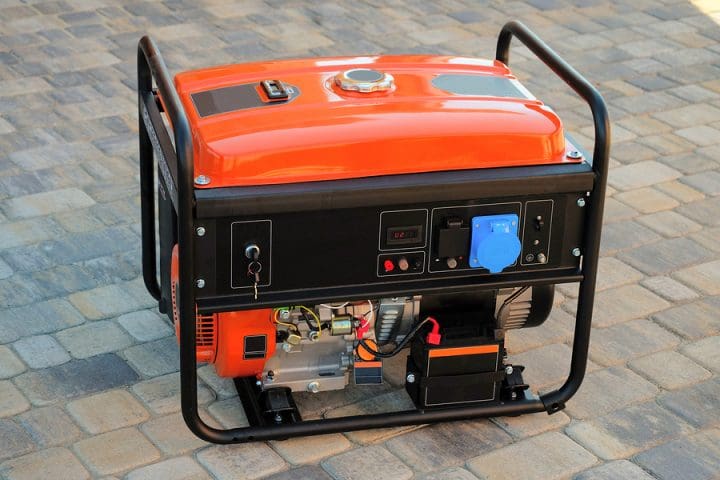
Portable Generator Sizing
Your backup power needs are key factors in choosing your type of portable generator. Certain types, like solar, can power a TV and computer with little issue. However, trying to power heavy-duty appliances like a fridge simultaneously requires a much heavier-duty option, such as the emergency type.
The best way to determine your specific power needs is to confirm the wattage of the appliances you want powered during an outage. The total wattage is your maximum load, which you’ll use to compare generator options.
Portable Generators for Home Backup Power
A typical day can quickly become a nightmare when a sudden power outage completely shuts down your home. Luckily, a home portable generator provides your house with substantial backup power, keeping everything from your lights, electronics, and heavy-duty appliances running smoothly.
Portable home generators run off either gasoline or liquid propane and, in some types, can run off of both. While this fuel assists in delivering great backup power, storing the generator with a full tank requires installing a fuel stabilizer to keep the fuel source clean of gum, varnish, and other debris.
Homeowners looking for a more eco-friendly option should consider solar-powered generators. Powered by solar rays, these generators produce quality backup power without producing exhaust and fumes that harm the environment.
Portable Home Generator Features
While looking simple, portable generators offer various features to enhance backup power usage.
These features include:
- Large fuel tanks for longer run times
- Easy mobility with handles and wheels for transportation
- Overload-protected power outlets
- Safe back-up power for all types of electronics
- Low operational noise
- Integrated fuel gauges for easy monitoring
Safety Precautions
Before using a portable generator, you should take time to focus on safe operations. While more compact, generators are still potentially dangerous machines that must be used properly.
The following tips include:
- Carbon Monoxide: Gasoline exhaust contains carbon monoxide. To prevent poisoning, never run a generator inside, and keep the unit at least 20 feet away from doors, windows, and vents.
- Placement: Where you put the unit is key. Aside from never running the unit inside, ensure the generator is running on a level surface to avoid exposure to dirt or moisture. Additionally, protect the unit from weather elements, as enough exposure can lead to rusting.
- Fire/Burns: To reduce the risk of a fire hazard, never attempt to overfill your unit with gasoline, especially when running. Overflowing fuel can reach the hot engine, causing an instant fire or explosion. Also, avoid coming in direct contact with a running generator, as the components can burn you.
- Electrical Risks: The main risk comes from overloading, which can severely damage the electronics you have plugged into the unit. Only operate electronics within the limitations of the unit, focusing on the most necessary items. Always ensure your unit has a transfer switch or outlet installed when connected directly to your home’s wiring to prevent the risk of severe hazards like backfeeding.
Portable Generator Frequently Asked Questions (FAQs)
What is the difference between rated watts and maximum surge watts?
Rated watts indicate a portable generator’s continuous power, while maximum watts refer to the power generated for short bursts.
Can I use a portable generator for backup during an electrical outage?
Of course, you can, as long as you take the proper precautions. When plugging in appliances and devices, do not do it all at once. Never plug the generator directly into your home or business outlet; have a professional install a transfer switch for safe operation.
Also, never run the generator indoors, as the lack of ventilation for the exhaust can put your household at risk of carbon monoxide poisoning.
What does a transfer switch do?
The transfer switch is the component that switches the power from your main power source to the backup portable generator. This prevents safety hazards such as backfeed.
What is back-feed?
Backfeed is when power is reversed onto the utility lines, typically when a portable generator is plugged into your home’s power outlet. When fed back, anyone working with the energized lines is at risk of life-threatening electrocution.
Does a portable backup generator need to be grounded?
Yes, a portable generator needs to be grounded for safe operation. Running without proper grounding risks fire hazards, damaging equipment, or life-threatening electrocution.
Can I use a portable generator during severe weather?
Many modern portable generators are built to work well even in adverse weather conditions. However, owners should protect the unit from the elements to prevent issues like shorting.
How often does a portable generator need maintenance?
The required maintenance for a portable generator will depend on factors like hours of operation and the number of months. This can mean changing out the oil after 25 hours of running and replacing the spark plugs every year.
Always refer to your manufacturer’s manual for maintenance specifications and timelines.
Do We Recommend Portable Generators?
No. Our team of technicians does not recommend investing in a portable generator. Instead, we suggest installing a whole-home standby generator. This type of system provides better protection against electrical outages.
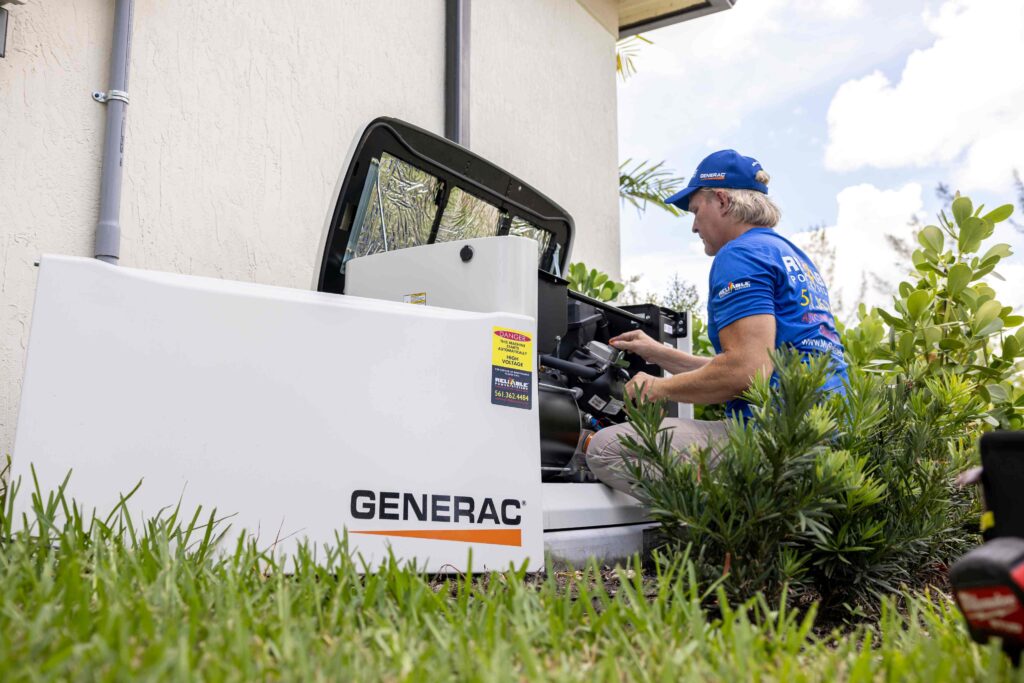
Professional Whole-Home Standby Generator Installation and Repair Services
If you need assistance comparing different options, contact our staff to learn more about our trustworthy generator services. Our skilled electricians offer the latest systems from brands including Generac, Kohler, and Briggs & Stratton.
When power is a concern, Reliable Power Systems is here to help. Call us or schedule an appointment online. Our team is proud to serve property owners in South Florida in areas including Wellington, Boca Raton, Stuart, Fort Lauderdale, Naples, Delray Beach, and beyond. We will work with you to choose a brand new standby power generator for your home.


